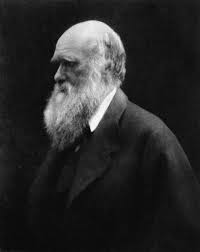Originally posted 2019-09-03 00:05:26.
By A. O.
The Misconception about Restricted Populations

However, scientific experiments and observations carried out in recent years have revealed that being in a restricted population is not an advantage from the genetic point of view, but rather a disadvantage.
The second concept stressed by the proponents of punctuated equilibrium theory is that of “restricted populations.”
By this, they mean that the emergence of new species comes about in communities containing very small numbers of plants or animals. According to this claim, large populations of animals show no evolutionary development and maintain their “stasis.”
But small groups sometimes become separated from these communities, and these “isolated” groups mate only amongst themselves. (It is hypothesized that this usually stems from geographical conditions.)
Macromutations are supposed to be most effective within such small, inbreeding groups, and that is how rapid “speciation” can take place.
But, why do proponents of the punctuated equilibrium theory insist so much on the concept of restricted populations? The reason is clear: Their aim is provide an explanation for the absence of intermediate forms in the fossil record.
However, scientific experiments and observations carried out in recent years have revealed that being in a restricted population is not an advantage from the genetic point of view, but rather a disadvantage. Far from developing in such a way as to give rise to new species, small populations give rise to serious genetic defects. The reason for this is that in restricted populations individuals must continually mate within a narrow genetic pool.
For this reason, normally heterozygous individuals become increasingly homozygous. This means that defective genes which are normally recessive become dominant, with the result that genetic defects and sickness increase within the population.1
In order to examine this matter, a 35-year study of a small, inbred population of chickens was carried out. It was found that the individual chickens became progressively weaker from the genetic point of view over time. Their egg production fell from 100 to 80 percent of individuals, and their fertility declined from 93 to 74 percent. But when chickens from other regions were added to the population, this trend toward genetic weakening was halted and even reversed. With the infusion of new genes from outside the restricted group, eventually the indicators of the health of the population returned to normal.2
This and similar discoveries have clearly revealed that the claim by the proponents of punctuated equilibrium theory that small populations are the source of evolution has no scientific validity.
Footnotes:
- M. E. Soulé and L. S. Mills, “Enhanced: No need to isolate genetics,” Science, 1998, vol. 282, p. 1658.
- R. L. Westemeier, J. D. Brawn, J. D. Brawn, S. A. Simpson, T. L. Esker, R. W. Jansen, J. W. Walk, E. L. Kershner, J. L. Bouzat, and K. N. Paige, “Tracking the long-term decline and recovery of an isolated population”, Science, 1998, vol. 282, p. 1695.
————-
Taken with slight editorial modifications from darwinismrefuted.com.
A. O. is a Turkish writer and author.
 Arabic
Arabic English
English Spanish
Spanish Russian
Russian Romanian
Romanian korean
korean Japanese
Japanese
